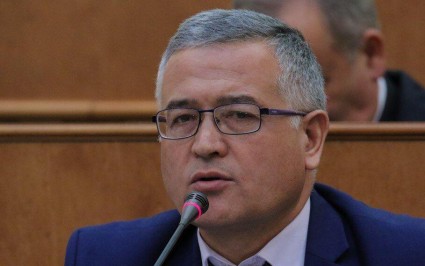U.S. Ambassador Jonathan Henick, alongside the Ministry of Health’s Director of the Center for Pharmaceutical Product Safety and the Agency for Development of the Pharmaceutical Industry launched USAID’s Diversifying Asia’s Pharmaceutical Supply Chain project. The two-year project valued at USD 2.5 million will strengthen local pharmaceutical regulation and production, enhance local technology and workforce skills, and attract investment to the industry.
The Diversifying Asia’s Pharmaceutical Supply Chain project will ensure that medicines produced in Uzbekistan meet both national and international quality standards. Medicines that are not manufactured properly may harm patients directly or fail to treat their underlying diseases. Ambassador Henick stated, “Through our partnership, we will improve the health of the people of Uzbekistan while also improving the strength and responsiveness of the public and private pharmaceutical sectors. By aligning with global standards, we not only protect patients but also boost trust in local medicines, pharmaceutical companies, pharmacists, and the healthcare system as a whole.”
Another key focus of the Diversifying Asia’s Pharmaceutical Supply Chain project is promoting the production of medicines in Uzbekistan, a sector that plays an essential role in the nation’s economic growth. Despite being the biggest pharmaceutical market in Central Asia, Uzbekistan still heavily relies on imported medicines and raw materials. To change this, the Government of Uzbekistan supports local manufacturing through various means such as import substitution, incentives for manufacturers, and robust quality control regulations. Currently, there are over 220 private pharmaceutical companies operating in Uzbekistan, producing around 45% of the country’s medicines. The government has set an ambitious goal of increasing this to 80% by 2026. USAID’s Diversifying Asia’s Pharmaceutical Supply Chain project plays a vital role in achieving this target by meeting domestic demand and facilitating the export of medicines abroad.















